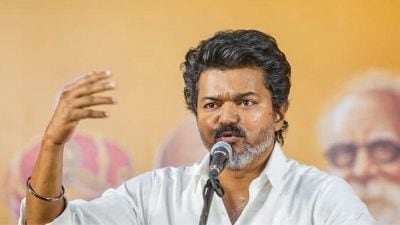Sino-Russian meet in shadow of N-deal
MOSCOW, Nov 8: The three-day summit between Russian President Boris Yeltsin and his Chinese counterpart Jiang Zemin, beginning in Beijing t...

MOSCOW, Nov 8: The three-day summit between Russian President Boris Yeltsin and his Chinese counterpart Jiang Zemin, beginning in Beijing tomorrow, is set to produce six major agreements for promoting bilateral cooperation in various fields including one on the border issue.
The document, to be signed by the two leaders on the 4300 km-long border, is seen as a major achievement as it would eliminate decades-old irritant blocking the way for cordial relations between the two countries. The document envisages joint economic use of many islands along the common border.
Another agreement is related to raising the total trade turnover to over twenty billion dollars from the present seven billion dollars, experts say though with a note of scepticism. Moscow considers the “oriental vector of diplomacy as an equivalent of its western diplomacy vector”, Yeltsin’s press secretary Sergei Yastrzhembsky told mediapersons here on the eve of the President’s China visit.
Yeltsin would not touch the question of sale of US nuclear technology to Beijing though it is seen as a major setback to Kremlin’s hopes of making deep inroads into Chinese nuclear power market, according to informed sources.
China will require new generation of nuclear reactors costing an estimated fifty billion dollars during the next few decades and by opening its doors for China to secure nuclear power knowhow and putting alleged human rights violations by Beijing on the backburner, Washington is confident of obtaining most of the nuclear contracts, Kremlin sources feel.
However, Russia is likely to gain more access to China’s non-nuclear power market for which Yeltsin and Jiang will sign agreements.
“Ria-Novosti’ in a commentary ahead of the scheduled summit also brings out the dismay in Moscow with Washington clinching a deal to exploit the Chinese civil aviation market. Jiang initialled a contract with US President Bill Clinton during the recent summit for Beijing to buy aircraft from the Boeing company.
Moscow is determined to move closer to the east, particularly China, India, Japan and ASEAN nations, to checkmate NATO’s threat, Russian observers point out.








- 01
- 02
- 03
- 04
- 05























